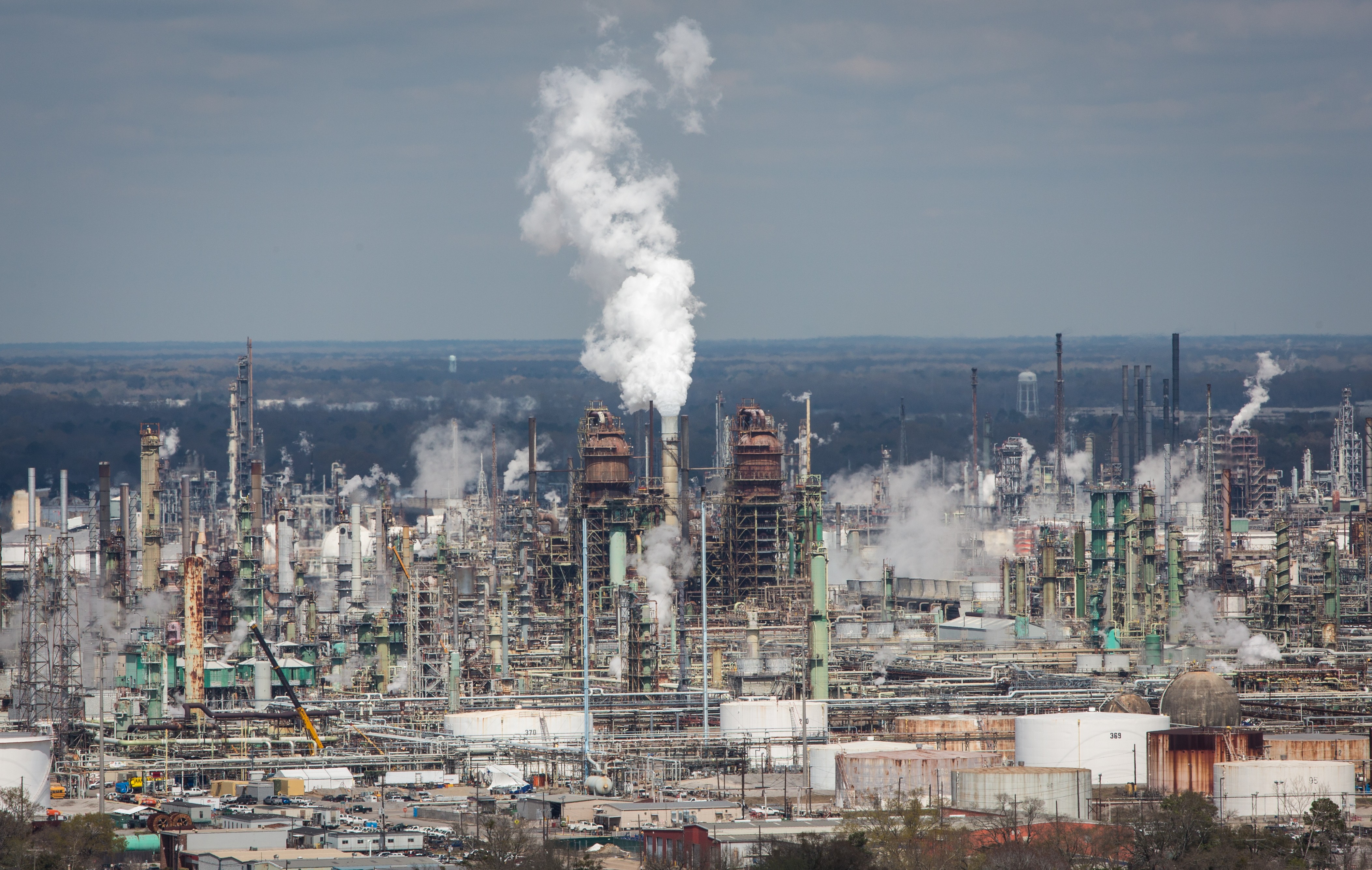Exxon Mobil's slippery climate science
Everything you need to know, in four paragraphs

A free daily email with the biggest news stories of the day – and the best features from TheWeek.com
You are now subscribed
Your newsletter sign-up was successful
The smartest insight and analysis, from all perspectives, rounded up from around the web:
Exxon Mobil has some explaining to do, said Justin Gillis and Clifford Krauss at The New York Times. The oil giant is being investigated by the New York attorney general over whether it lied to its investors and the public about the risks of climate change. For decades, Exxon Mobil allegedly poured money into outside groups dedicated to undermining the scientific case for climate change, even as the company's own scientists warned Exxon executives about the potential environmental consequences of burning fossil fuels. Some legal experts are already comparing the inquiry to the multibillion-dollar lawsuits brought against Big Tobacco for fudging the health impact of smoking. Depending on what the investigation finds, we may soon see a "legal assault on fossil fuel companies."
Exxon knew as early as the 1970s that carbon dioxide emissions from burning oil and gas "could have dire effects on the Earth," said Timothy Egan, also at the Times. But instead of coming clean, the company engineered a disinformation campaign "Soviet-era propagandists would be proud of." By the time Exxon cut off funding for climate change deniers in the mid-2000s and admitted that humans were largely to blame for the Earth's warming, the damage had been done. Republican presidential candidates in 2015, "with a far bigger megaphone than Exxon ever had," continue to spout "the very junk science" hatched in its boardroom.
The Week
Escape your echo chamber. Get the facts behind the news, plus analysis from multiple perspectives.

Sign up for The Week's Free Newsletters
From our morning news briefing to a weekly Good News Newsletter, get the best of The Week delivered directly to your inbox.
From our morning news briefing to a weekly Good News Newsletter, get the best of The Week delivered directly to your inbox.
"If you care about free speech," said Robert Samuelson at The Washington Post, the campaign against Exxon should trouble you. For one thing, it's a real stretch to blame Exxon for our own foot dragging in addressing climate change. The millions of Americans who revile Big Oil "are not uncritical consumers of industry propaganda." We should also be wary of any government effort to punish a company for essentially "expressing its opinions." Those opinions may be smart or stupid, sensible or self-interested; "whatever, they deserve protection." Scapegoating Exxon for global warming is a "political cheap shot." More like a "witch hunt," said Holman Jenkins Jr. at The Wall Street Journal. Exxon's climate research has been conducted in public view for decades, with the "allegedly damning documents" about a stealthy misinformation campaign coming from peer-reviewed journals and Exxon's own website. The company's real crime is not subscribing to the very specific vision of "climate doom" endorsed by environmentalists, who want draconian restrictions on fossil fuels.
"Lying to the public is the American way," said Matt Levine at Bloomberg View. It's also perfectly legal. Lying to investors, on the other hand, is what we call "fraud." And that's where Exxon could be in trouble. Misleading the public about science and policy "are everyday parts of our great democracy." But deceptions about science's possible effect on your stock price risks a securities fraud investigation, especially in New York state, where the attorney general has broad powers to prosecute financial fraud. There's a distinct limit to any company's claim to free speech. "Corporations are people, perhaps, but they're not quite as free as you might have thought."
A free daily email with the biggest news stories of the day – and the best features from TheWeek.com
-
 Tourangelle-style pork with prunes recipe
Tourangelle-style pork with prunes recipeThe Week Recommends This traditional, rustic dish is a French classic
-
 The Epstein files: glimpses of a deeply disturbing world
The Epstein files: glimpses of a deeply disturbing worldIn the Spotlight Trove of released documents paint a picture of depravity and privilege in which men hold the cards, and women are powerless or peripheral
-
 Jeff Bezos: cutting the legs off The Washington Post
Jeff Bezos: cutting the legs off The Washington PostIn the Spotlight A stalwart of American journalism is a shadow of itself after swingeing cuts by its billionaire owner
-
 The pros and cons of noncompete agreements
The pros and cons of noncompete agreementsThe Explainer The FTC wants to ban companies from binding their employees with noncompete agreements. Who would this benefit, and who would it hurt?
-
 What experts are saying about the economy's surprise contraction
What experts are saying about the economy's surprise contractionThe Explainer The sharpest opinions on the debate from around the web
-
 The death of cities was greatly exaggerated
The death of cities was greatly exaggeratedThe Explainer Why the pandemic predictions about urban flight were wrong
-
 The housing crisis is here
The housing crisis is hereThe Explainer As the pandemic takes its toll, renters face eviction even as buyers are bidding higher
-
 How to be an ally to marginalized coworkers
How to be an ally to marginalized coworkersThe Explainer Show up for your colleagues by showing that you see them and their struggles
-
 What the stock market knows
What the stock market knowsThe Explainer Publicly traded companies are going to wallop small businesses
-
 Can the government save small businesses?
Can the government save small businesses?The Explainer Many are fighting for a fair share of the coronavirus rescue package
-
 How the oil crash could turn into a much bigger economic shock
How the oil crash could turn into a much bigger economic shockThe Explainer This could be a huge problem for the entire economy